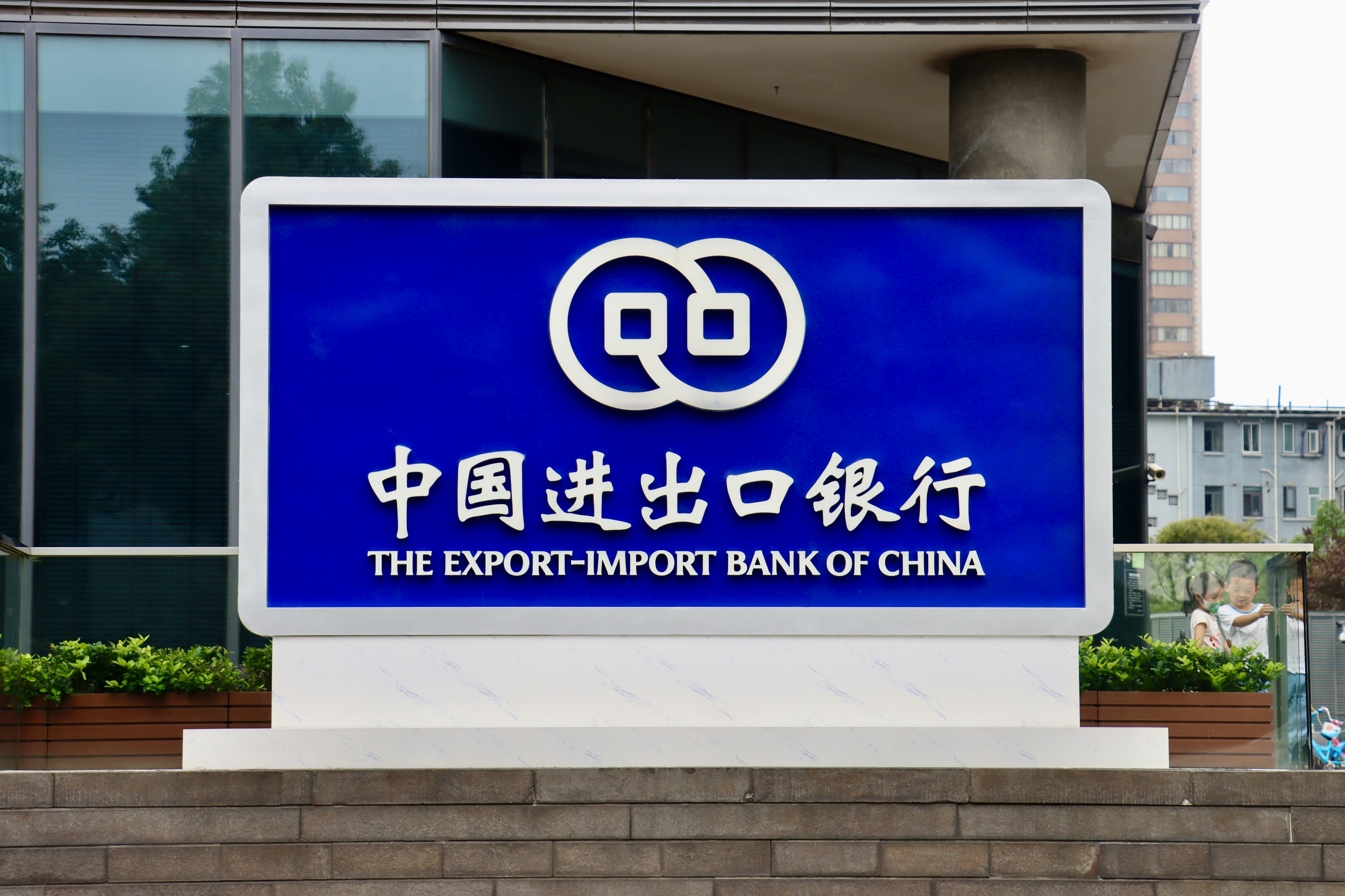Introduction

Navigating the complex world of China's corporate tax rate can be daunting for foreign businesses. Understanding the intricacies of Chinese tax laws is crucial for success in the Chinese market, especially when it comes to the impact of corporate tax on companies and how to sell in China.
Understanding China Corporate Tax Rate
China's corporate tax rate is a key consideration for foreign businesses operating in the country. To ensure compliance and optimize tax strategy, it's essential to have a clear understanding of the various taxes, including VAT and corporate income tax.
Impact of Corporate Tax on Businesses
The impact of corporate tax on businesses in China can be significant, affecting their profitability and overall financial health. Knowing how to navigate these taxes and leverage opportunities for tax optimization is crucial for success in the Chinese market.
Navigating China Tax Laws for Foreign Businesses
Navigating China's complex tax laws is essential for foreign businesses looking to operate in the country. From understanding VAT regulations to ensuring compliance with corporate income tax obligations, having a solid grasp of China's tax laws is vital.
Understanding the tax incentives and exemptions available to foreign businesses can provide significant cost savings. For example, specific industries or regions in China may offer preferential tax policies to attract foreign investment. By staying informed about these opportunities, businesses can take advantage of potential tax breaks and optimize their financial strategies in China.
China Corporate Tax Rate Explained

Now, let's examine China's corporate tax rate in more detail. China's standard Corporate Income Tax (CIT) rate is 25%, but specific industries and regions may enjoy preferential rates. Businesses must understand the tax brackets and exemptions to optimize their tax strategy and minimize liabilities.
Corporate Income Tax Overview
China's Corporate Income Tax (CIT) can be complex for American businesses, especially with varying rates and regulations for foreign-invested enterprises. Here's a breakdown to navigate this:
- Standard CIT Rate: The baseline CIT rate is 25% for all companies, domestic and foreign.
- Reduced Rates: Certain industries and company types qualify for lower rates, such as high-tech businesses at 15% and small enterprises with potential rates as low as 5%.
- Foreign Enterprise Considerations: Foreign-invested enterprises may have additional filing requirements or tax implications depending on their establishment and income source.
To ensure compliance and optimize tax efficiency, seeking expert guidance is essential for American businesses operating in China.
Value Added Tax (VAT) in China
Value Added Tax (VAT) is a consumption tax that applies to the value added at each stage of production or distribution. In China, VAT rates vary depending on the type of goods or services provided, with standard rates ranging from 6% to 17%. For foreign businesses selling goods or services in China, it's crucial to understand VAT obligations and how they impact pricing and profitability.
Tax Obligations for Foreign Businesses Operating in China
Foreign businesses in China must fulfill various tax obligations to ensure smooth operations and avoid legal issues. Here's a breakdown of key areas to consider:
- Enterprise Income Tax (CIT): This is the primary tax levied on corporate profits earned in China.
- Value-Added Tax (VAT): This applies to selling goods and services within China.
- Withholding Taxes: These taxes are deducted from the source for certain income types like dividends or royalties.
Understanding these and other relevant taxes is crucial. Complying with Chinese tax regulations demonstrates good corporate citizenship and minimizes the risk of penalties or disputes.
AC&E can be your trusted advisor throughout your China journey, providing expert legal support for informed business decisions – from land purchases to investments and market entry. Let us help you navigate the dynamic Chinese market with confidence.
Key Considerations for Americans Doing Business in China

When buying land in China, Americans should know that the Chinese government does not allow foreign individuals or entities to own land outright. However, they can obtain land use rights through lease agreements for up to 70 years. This means that while Americans cannot technically buy land in China, they can still secure long-term rights to use it for business operations.
Can Americans Buy Land in China
Americans looking to invest in China have the option of using tangible assets, such as stocks and bonds, to gain financial interest in Chinese businesses without directly owning property. This allows them to participate in the growth of Chinese companies and industries without facing the restrictions on land ownership.
Choses in Action for Foreign Investors
Selling goods and services in China can be a lucrative opportunity for American businesses, but it requires careful consideration of local regulations and consumer preferences. Understanding the culture and consumer behavior is crucial, as is complying with China's VAT requirements and other tax obligations related to selling products or services within the country.
Selling Goods and Services in China
China is a massive market with great potential for foreign businesses looking to sell their goods and services. However, navigating the complexities of selling in China can be daunting, especially regarding tax implications. Understanding the tax laws and regulations surrounding the sale of goods and services in China is crucial for any business looking to capitalize on this lucrative market. Various considerations must be considered when selling in China, from value-added tax (VAT) to import/export duties.
One key consideration for selling goods and services in China is the impact of VAT on pricing and profitability. VAT rates can vary depending on the type of goods or services being sold and whether they are imported or domestically produced. Businesses should factor these taxes into their pricing strategies and ensure compliance with Chinese tax laws to avoid any potential penalties or legal issues.
In addition, foreign businesses must also consider the customs duties and import/export taxes that may apply when bringing goods into or out of China. Navigating these regulations can be complex, but with the right support and expertise, businesses can ensure they meet their tax obligations while maximizing their opportunities for success in the Chinese market.
Overall, understanding the intricacies of selling goods and services in China from a tax perspective is essential for any business looking to thrive in this dynamic market. By staying informed about the latest tax laws and regulations, companies can position themselves for success while mitigating any potential risks associated with non-compliance or misunderstandings of Chinese tax requirements.
How AC&E Can Help Businesses Navigate China Corporate Tax Rate

Expertise in International Trade Disputes
At AC&E, we have extensive experience handling international trade disputes, including those related to China's corporate tax rate. Our team of legal experts can provide strategic guidance and representation to help businesses navigate complex tax regulations and resolve disputes effectively.
In addition to our expertise in international trade disputes, our team at AC&E also specializes in providing comprehensive advice and support for businesses looking to establish a presence in foreign markets. From navigating local regulations and compliance requirements to structuring corporate entities, we offer tailored solutions to help companies set up operations abroad successfully. With our deep understanding of global business environments, we can guide clients through the complexities of company establishment, ensuring a smooth and efficient process.
Company Establishment Services
Navigating the process of establishing a company in China can be daunting, especially when considering corporate tax implications. AC&E offers comprehensive company establishment services, ensuring that businesses are set up in compliance with Chinese tax laws and regulations.
Navigating the process of establishing a company in China can be daunting, especially when considering corporate tax implications. AC&E offers comprehensive company establishment services, ensuring that businesses are set up in compliance with Chinese tax laws and regulations. Our team of experts will guide you through every step, from registering your company to obtaining the necessary permits and licenses. With our support, you can rest assured that your business will be established efficiently and legally in China.
Legal Support for Foreign-Related Matters
Regarding foreign-related legal matters in China, AC&E is well-equipped to provide expert guidance and support. Whether it's understanding the intricacies of China VAT or addressing questions about land ownership for Americans doing business in China, our legal team is dedicated to helping companies to confidently navigate these complexities.
Optimizing Tax Strategy in China

When optimizing tax strategy in China, it's crucial to understand the various tax incentives available. From preferential tax rates for specific industries to deductions for research and development expenses, knowing how to take advantage of these incentives can significantly impact your bottom line. By partnering with a knowledgeable tax advisor, you can ensure your business maximizes its potential tax benefits.
Understanding Tax Incentives
In China, numerous tax incentives are designed to encourage investment and economic growth. For example, businesses engaged in high-tech industries may be eligible for a reduced corporate income tax rate of 15%. Additionally, companies that meet specific environmental protection or energy conservation criteria may qualify for preferential tax treatment. By understanding these incentives and how they apply to your business operations, you can make strategic decisions that minimize your tax burden.
Compliance with China Tax Laws
Compliance with China's complex and ever-changing tax laws is essential for businesses. From navigating VAT regulations to ensuring accurate corporate income tax reporting, staying compliant requires a deep understanding of the local tax landscape. Working with a reputable legal firm like AC&E can help you stay on top of regulatory changes and avoid costly penalties associated with non-compliance.
Navigating the complex tax laws in China can be daunting for businesses, especially those unfamiliar with the local landscape. However, by partnering with a reputable legal firm like AC&E, companies can leverage opportunities for tax optimization. This may involve exploring tax incentives and exemptions that could help minimize tax liabilities and maximize profitability. With the right expertise and guidance, businesses can take advantage of these opportunities to ensure compliance while optimizing their tax strategy for long-term success.
Leveraging Opportunities for Tax Optimization
Beyond simply complying with tax laws, savvy businesses look for opportunities to optimize their overall tax strategy in China. This may involve structuring transactions to minimize taxable income or taking advantage of available deductions and credits. By leveraging these opportunities, businesses can reduce their overall tax liability while fully complying with Chinese regulations.
Ensuring Compliance and Mitigating Risks

Contract Drafting and Review
When doing business in China, it's crucial to have airtight contracts that protect your interests. AC&E offers expert contract drafting and review services to ensure that your agreements comply with China corporate tax rate laws and provide you with the necessary legal protections.
In addition to ensuring compliance with China's corporate tax rate laws, our expert contract drafting and review services also focus on clearly outlining the rights and responsibilities of all parties involved. We understand the importance of clarity in contracts to avoid potential misunderstandings or disputes down the line. Our team will work closely with you to tailor contracts that address your business needs and goals, providing peace of mind as you navigate the complexities of doing business in China.
Due Diligence and Verification Services
Successfully navigating the complexities of foreign business operations in China requires a proactive approach to risk mitigation. AC&E can help you achieve this through the following services:
- Comprehensive Background Checks: We conduct in-depth due diligence to verify the legitimacy and reputation of potential partners and vendors.
- Financial Audits: Our team of experts can perform thorough financial audits to ensure transparency and identify any financial irregularities.
- Risk Assessments: We leverage our expertise to assess potential risks associated with China's corporate tax rate compliance and other regulatory areas.
With our deep understanding of Chinese business practices and extensive network of local resources, AC&E can guide you through the intricate web of compliance requirements and identify any red flags that could impact your operations.
Intellectual Property Protection in China
Protecting your intellectual property rights is essential when operating in China. AC&E provides strategic legal support for safeguarding your patents, trademarks, and copyrights, ensuring that your innovative ideas are shielded from infringement while complying with China corporate tax rate regulations.
By leveraging AC&E's expertise in contract law, due diligence services, and intellectual property protection strategies, businesses can confidently navigate the complexities of China's corporate tax landscape while mitigating potential risks.
Navigate China's Corporate Tax Rate with Confidence

When understanding the ins and outs of China's corporate tax rate, it's essential to have a trusted partner like AC&E by your side. With our expertise in international trade disputes and legal support for foreign-related matters, you can confidently navigate the complexities of China's tax laws.
By partnering with AC&E for legal solutions, you can also benefit from our extensive network of contacts and resources in China. Our team has built strong relationships with key players in the Chinese business and legal communities, giving us access to valuable insights and information that can help you make informed decisions about your tax strategy. With AC&E, you'll have the support to stay ahead of changes in China's corporate tax laws and regulations.
Partnering with AC&E for Legal Solutions
Whether you're a foreign business looking to establish a presence in China or an American investor exploring opportunities there, AC&E can provide the legal solutions you need. From contract drafting and review to intellectual property protection, we offer comprehensive support for businesses operating in China.
Making Informed Decisions with AC&E
At AC&E, we understand the importance of making informed decisions when navigating China's corporate tax rate. With our guidance and support, you can optimize your tax strategy, ensure compliance, and mitigate risks effectively. Trust AC&E as your partner for all business-related legal matters in China. Furthermore, our team stays up-to-date with the latest changes in Chinese tax laws and regulations, providing the most relevant and accurate advice to keep your business in good standing. We pride ourselves on offering personalized solutions tailored to your needs, ensuring you receive the best support for your tax-related concerns.
